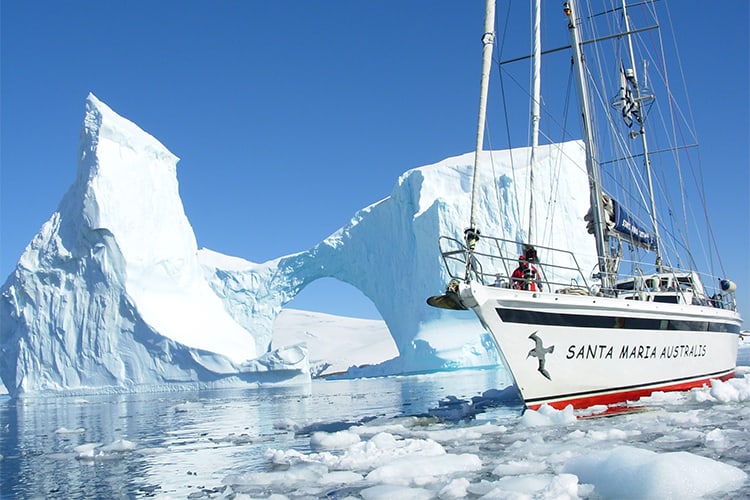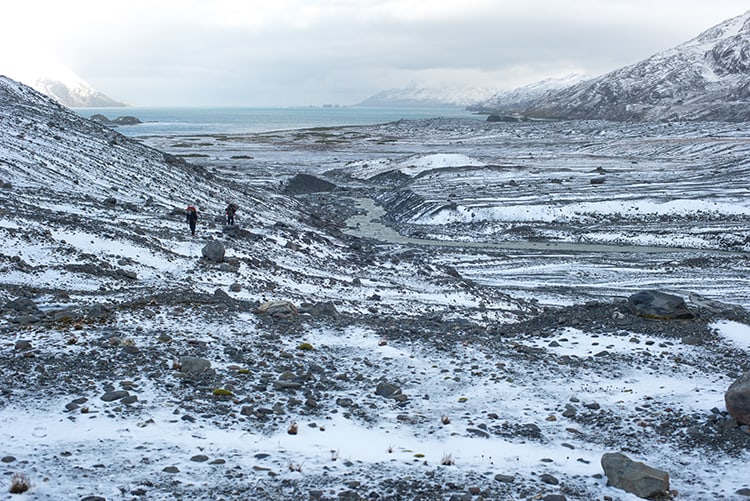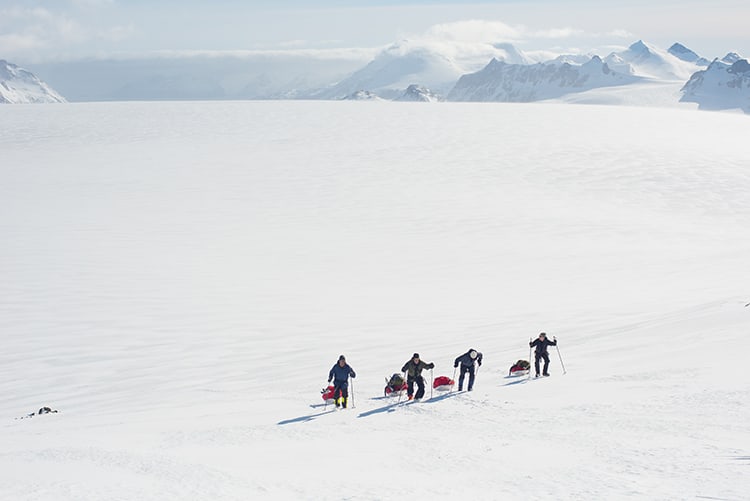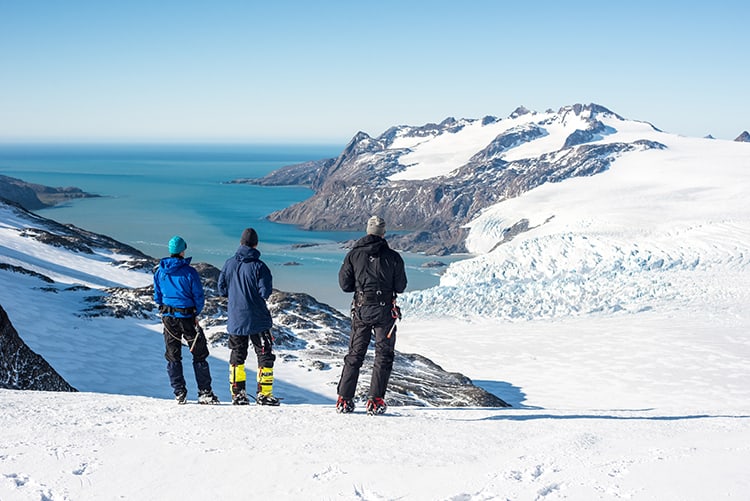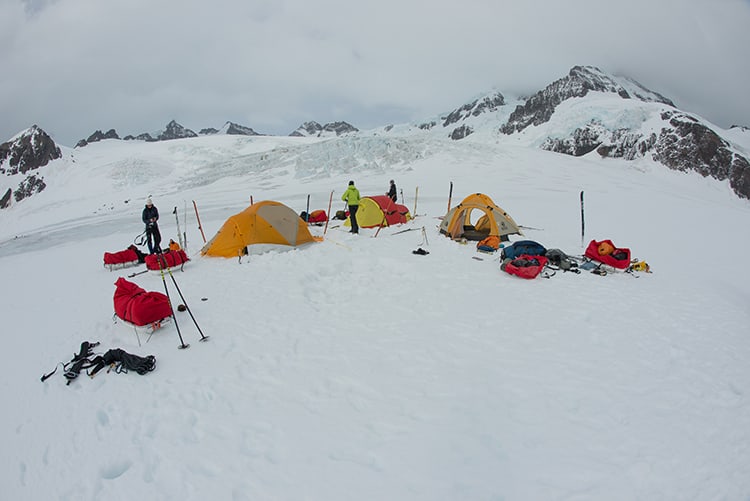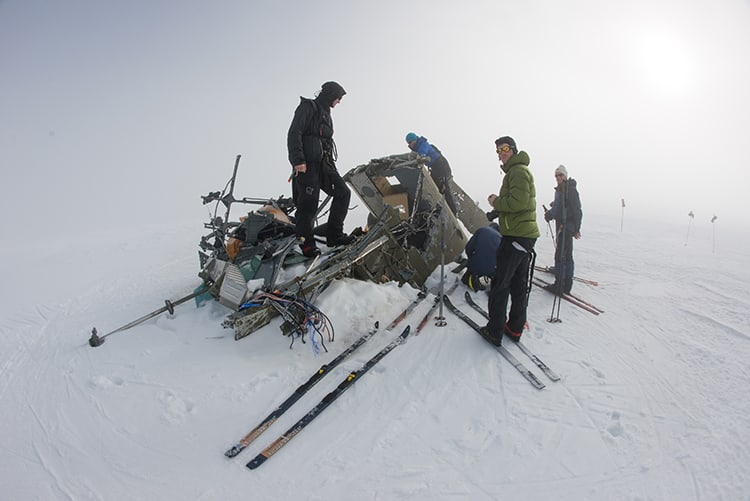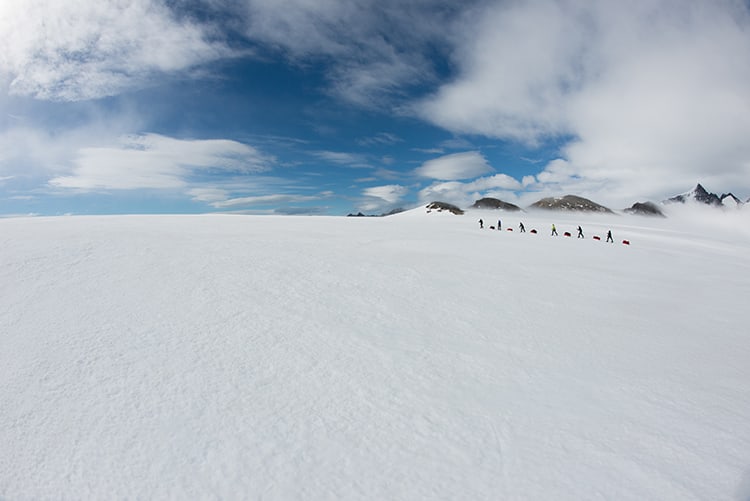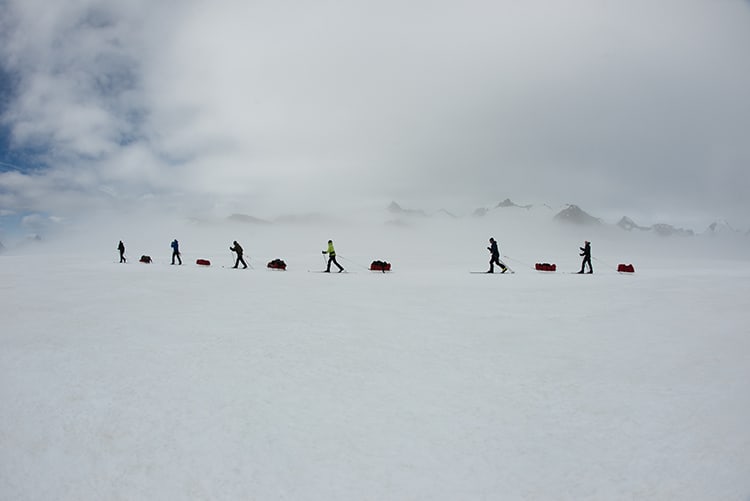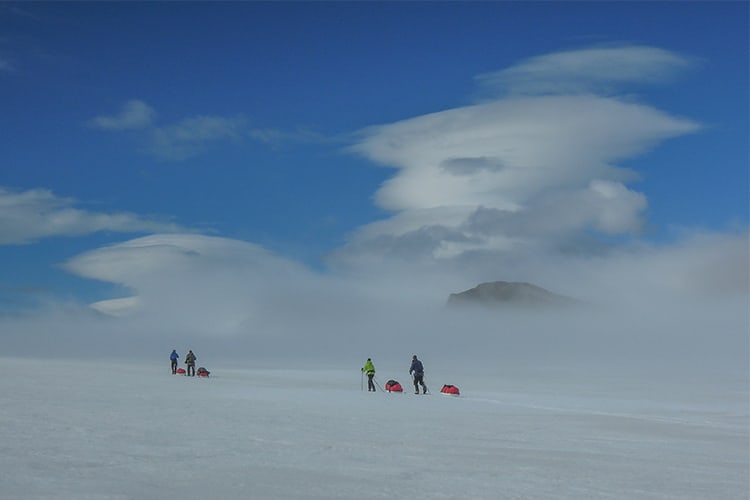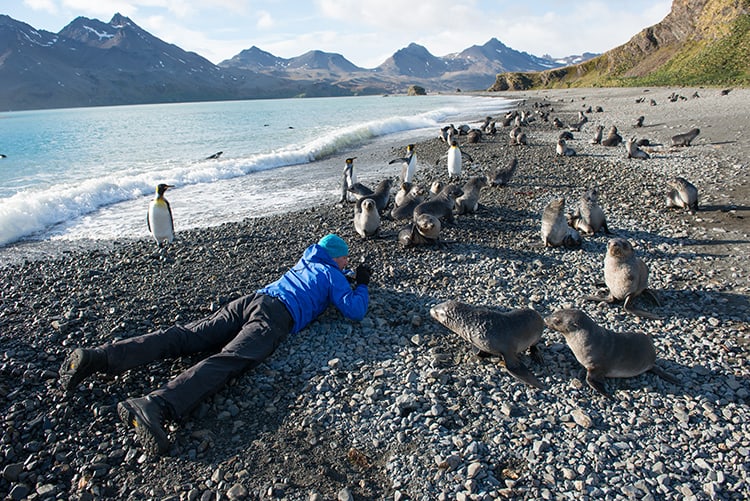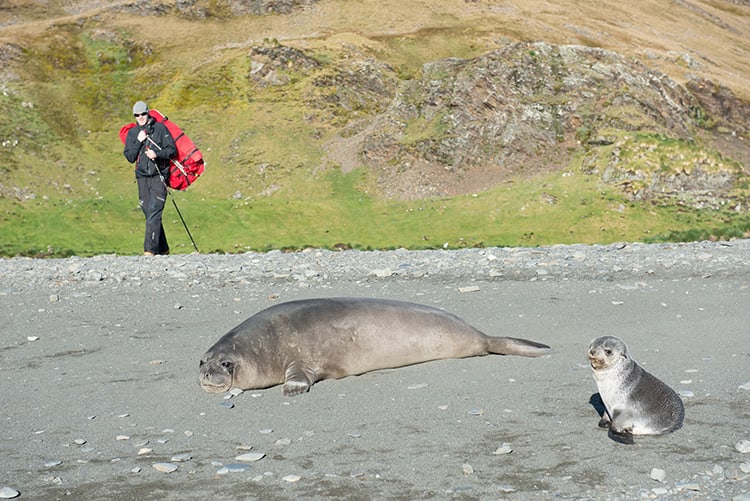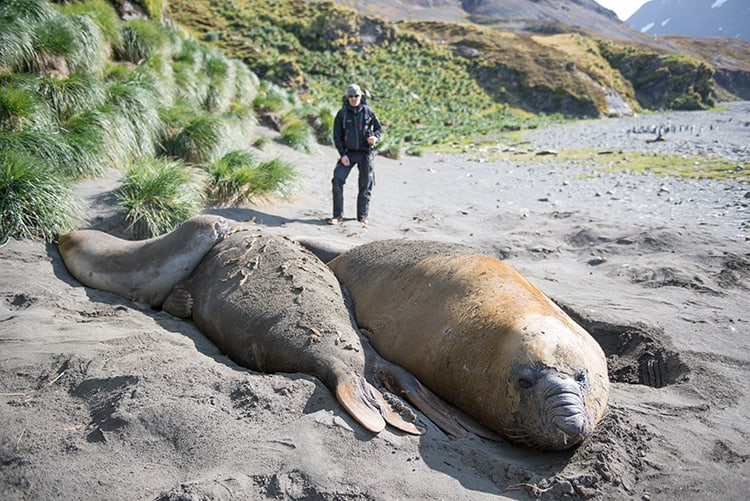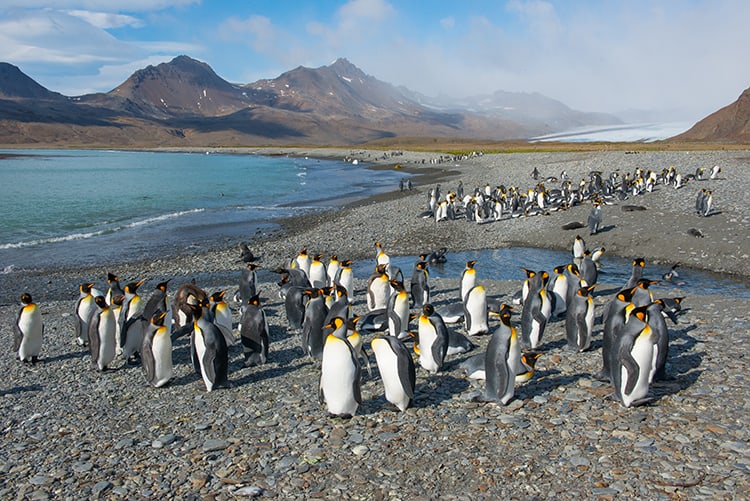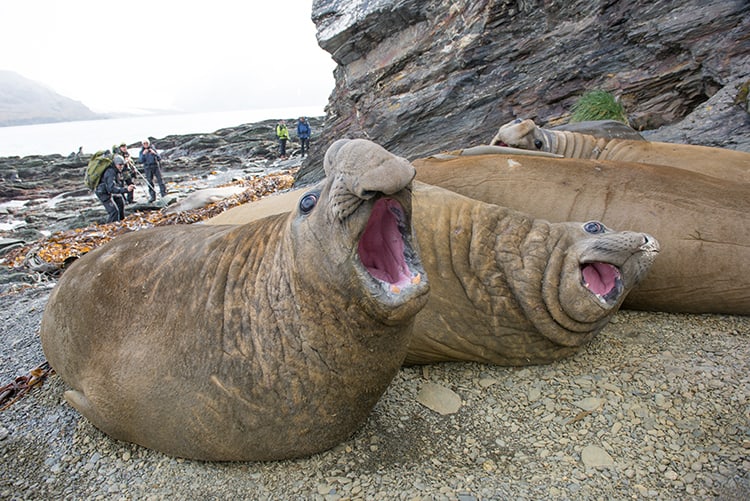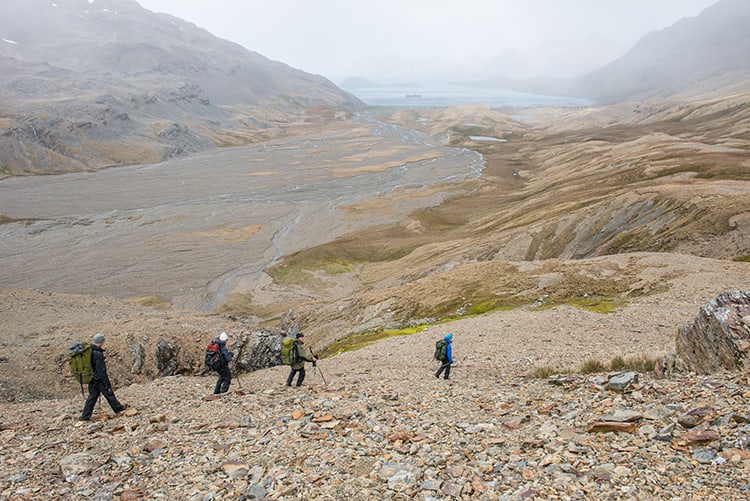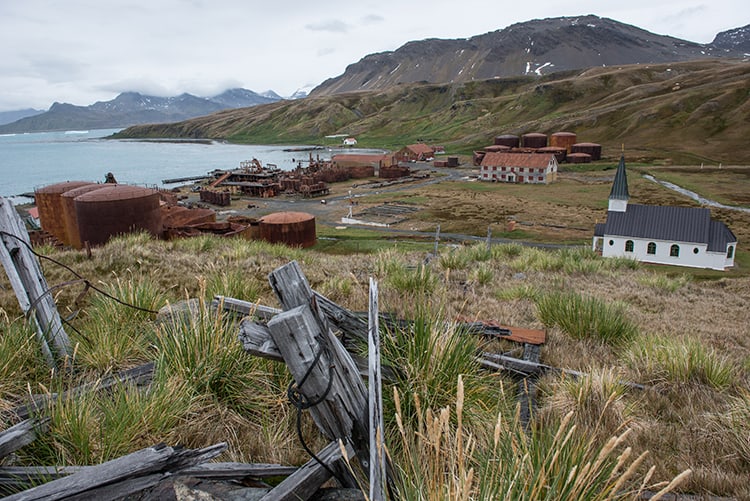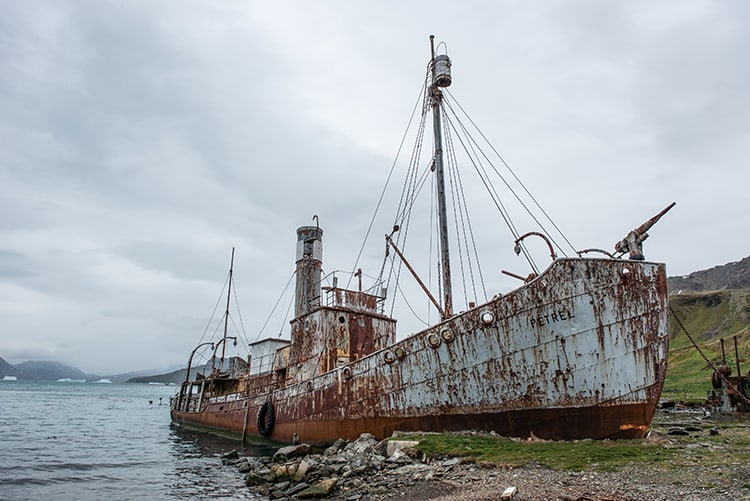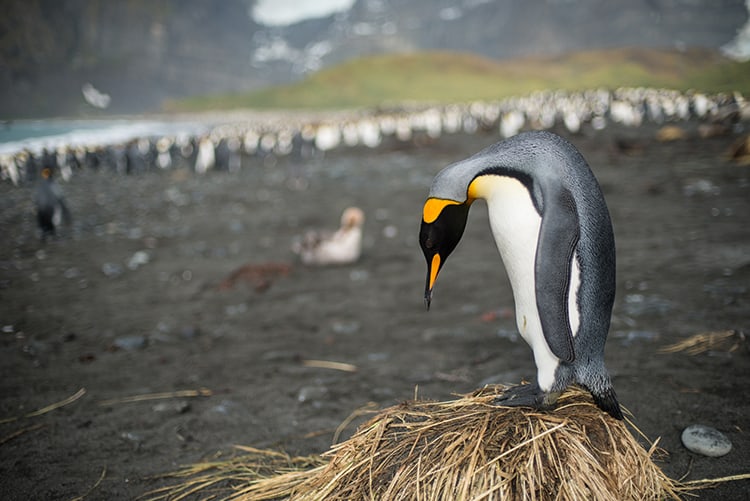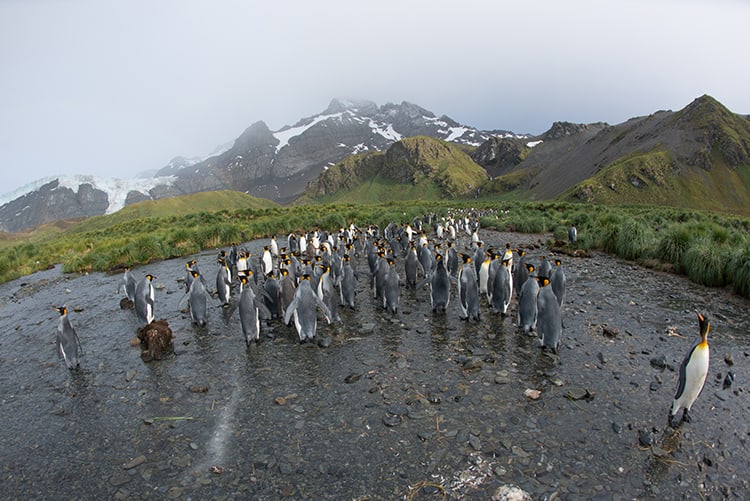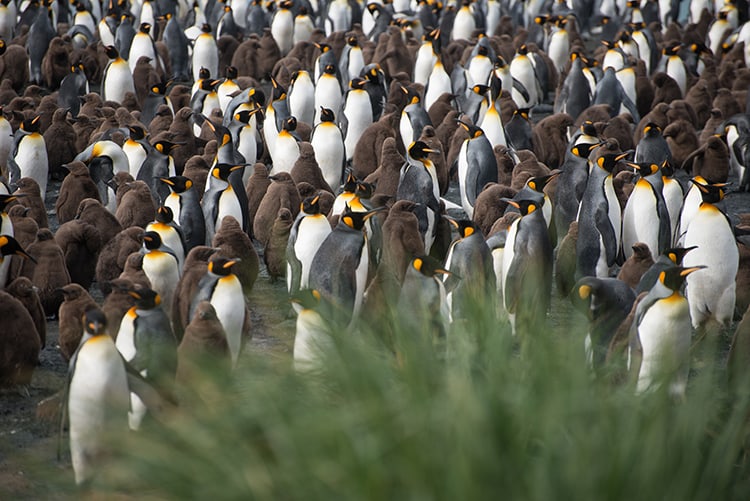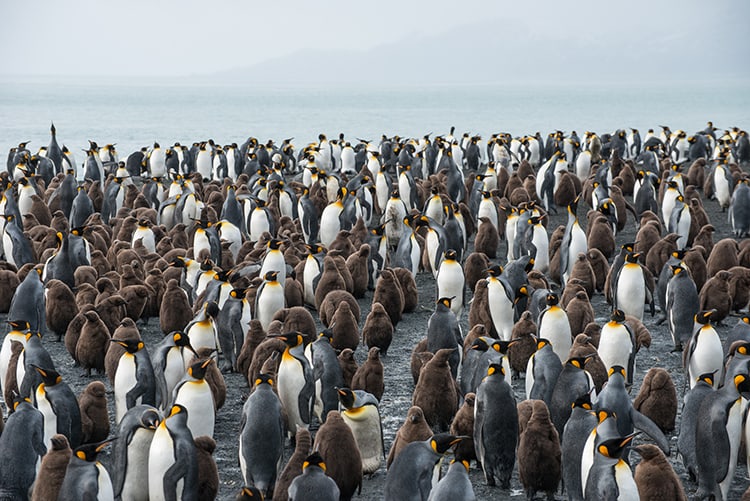South Georgia Tour
Nov 18 – Dec 16, 2023
Important Facts:
- Island traverse of subantarctic South Georgia
- Ski expedition with pulka and tent
- Arrival by sailboat Santa Maria Australis guided by the experienced skipper Wolf Kloss
- Total trip duration is 29 days (excl. arrival and departure)
- We will travel by plane to the Falkland Islands, sail to South Georgia and traverse the island on skis in 5 days
- In a small group, we will experience the untouched and remote wilderness of South Georgia
- We will see king penguins, elephant seals, fur seals and albatross
- Target rate 2021 per person:
Rates from 6 pax: CHF 27’900.-
Rates for 5 pax: CHF 29'900.-
Rates for 4 pax: CHF 30'900.-
Rates for 3 pax: CHF 31'900.- In cooperation with Kobler & Partner
Interested?
In Shackleton's Footsteps across South Georgia
Sir Ernest Shackleton was one of the principal figures of the period known as the Heroic Age of Antarctic Exploration. The story of his expedition is one of the most predominant out of this era. For 100 years, the name Shackleton has stood for leadership and perseverance.
Through his leadership and his pioneer crossing of South Georgia, he saved the lives of his fellow crew members. We follow the route Shackleton chose over 100 years ago and step in the footsteps of one of the greatest explorers of all time:
In 1914, Shackleton made a further attempt to reach the South Pole. His ship, the Endurance, got caught and enclosed in pack ice in the Weddell Sea.
The crew members set up camp and in November 2015 were forced to watch as the ice crushed the Endurance eventually causing it to sink. Various attempts to reach stations set up by previous explorers all failed. On April 14, 1916, after having spent 497 days on ice and at sea, the men reached Elephant Island, a inhospitable place far off the main shipping routes.
With no hope of rescue, Shackleton decided to take things in his own hands:
On April 24, 1916, along with Captain Frank Worsley and four other crew members, Shackleton started off in a lifeboat, the James Caird, hoping to reach one of the whaling stations on South Georgia. They spent 15 days in an open boat over the tumultuous seas of the South Atlantic until on May 8th, they sighted South Georgia and managed to go ashore at King Haakon Bay on the inhabited south side of the island. Due to horrible weather, Shackleton decided against further travel by boat and instead to cross the island by foot. He started off on this unknown route along with Tom Crean and Frank Worsley. On May 20, 1916, after having walked for 36 hours over a frozen mountain range, they reached the whaling station Stromness..
From here, he sent off a boat to rescue the three remaining crew members left behind on the north shore of the island. After various unsuccessful attempts to rescue the rest of the crew waiting on Elephant Island, Shackleton turned to the Chilean government for help. The hauler Yelcho under the lead of Captain Luis Pardo, reached Elephant Island on August 30, 1916. All 22 men still holding out there were rescued.
We will visit every station of this historic adventure on South Georgia, follow the Shackleton Route over the majestic mountain landscape in a subantarctic environment and also explore the island upon arrival in Stromness.
Travel Information
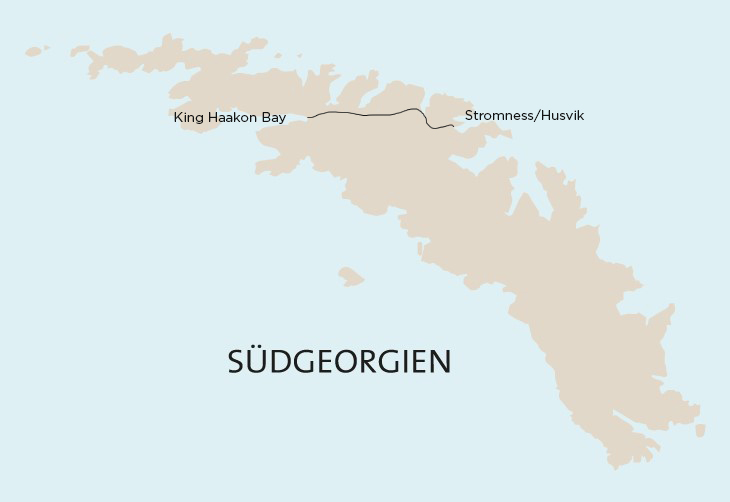
Our starting point is London. From there, we will board a military plane to the Falkland Islands where our accommodation, the sailboat Santa Maria Australis, will be waiting for us. From the Falkland Islands, we will sail back to the south coast of South Georgia and go ashore at King Haakon Bay. This is where Ernest Shackleton first stepped on solid ground after his odysee with the James Caird. As opposed to Shackleton, we will be crossing the island in 4 - 5 days, not in 36 hours and with significantly better meals. We will travel towards the east, our final destination being Stromness on the north coast. Stromness is a deserted whaling station, penguins and seals lounge about between rusty tanks and dilapidated buildings which decorate the skyline.
The Santa Maria Australis will be waiting for us there. During several further excursions on shore, you will be able to see some large colonies of king penguins, sea elephants and fur seals. All landings are influenced strongly by weather conditions. We will then sail back from South Georgia to the Falkland Islands, catching a military plane back to London from there.
Temperatures in November in South Georgia lie between +10°C and -10°C. Sunshine during the day cause temperatures to be warm up to very warm. During the crossing, accomodation is in tents, on the Santa Maria Australis in basic cabins. On the tour we traverse glaciers, at times roped up and for this reason will be practicing crevasse rescue prior to heading out. Some experience in cross country skiing or ski touring is helpful but not mandatory. We will be walking an average of 7 - 9 hours per day in South Georgia, taking hourly breaks in between. Our walking speed will be determined by weather conditions and the group. Each participant will pull a polar sledge holding their own baggage and some of the group material. The group will be equipped with the latest material available, our polar sledge especially standing out from polar sledges used on other expeditions. All participants will be supplied with a polar sledge specially designed by Thomas Ulrich for polar expeditions, making the load pulling significantly easier. For the traverse, a permit from the British authorities is required, issued only to those possessing sufficient previous expedition experience..
Sailing to the south coast of South Georgia
Requirements
Although demanding, this tour is not only designed for competitive athletes. Motivation, a large portion of perseverance, mental strength along with sufficient training and preparation prior to the expedition are the key requirements for success. Our polar sledge will weigh between 30 and 40 kg. No previous sailing experience is required, however daily help with duties on board is appreciated./p>
Key requirements are:
- Physical health and fitness (systematic training prior to the expedition, walking on skis and pulling heavy loads)
- Perseverance and willingness to actively help with group tasks
- Expedition experience (setting up a tent in a storm, using a gas cooker in a tent)
- Ability to work in a team
Safety and risks
Safety is our priority. The trip will be personally lead by myself. I am a state-certified mountain guide (UIAA) as well as a member of the International Polar Guide Association (IPGA). On an expedition, a fair portion of remaining risk can be reduced through appropriate equipment. We always carry redundant means of communication (satellite phone and emergency sender), the latest navigation tools (GPS), a complete and extensive expedition first aid kit, repair parts for the most delicate pieces of equipment as well as ropes and other safety equipment needed.
Our home base team is at our disposal 24/7 throughout the whole expedition, giving us medical and/or strategic advice or in case of an emergency, organising the fastest alert and evacuation possible. Travelling through remote and harsh environments such as South Georgia naturally involves a certain risk. On the whole in these surroundings, bad luck has a much harder impact than in other areas. Incidents such as small injuries, frostbite or sudden illness cannot be excluded. In order to cover rescue costs, according insurance is mandatory for each participant. To sum it up, one has to be aware that with regard to the specific conditions of this expedition it cannot be compared to ordinary journeys. It is clear, too, that there is a certain risk of accidents and injuries and that each participant takes part in the expedition at his or her own risk and in full knowledge of this situation. Each has to sign a declaration that he is fully informed about all this and prepared to take the risk.
Equipment
Knowing that extreme cold weather can be well endured through appropriate equipment and the proper handling of such is extremely fascinating. The extensive expedition know how of Thomas Ulrich is therefore crucial for you as a participant. Putting together equipment for an expedition can be an exciting aspect, you can count on our immense experience with polar expeditions.
A briefing weekend in the wintry Swiss mountains is included in the services we offer and gives every participant the opportunity to have his complete equipment tested in view of the expedition. The same goes for your own personal equipment or that borrowed from friends. Thus we can guarantee that you are sure to enjoy this expedition. In the course of the expedition itself you will also learn a lot about the proper material for extreme trips and profit from the extensive know how of Thomas Ulrich.
We will put the complete group material at your disposal: Tents, sledges, mattresses, cookers and cooking material, fuel, means of communication (satellite phone and emergency radio), food etc. And this is what is included for you personally: skis, poles, mittens and gloves, face mask, caps as well as a sleeping bag which is sure to keep you warm.
Equipment you will have to bring yourself (not included): Your personal equipment includes a wind-and waterproof jacket and pants, thermal underwear, fleece jacket, dowin insulation layers, thin liner gloves and sunglasses. If you need some of these items we will gladly advise you or – for an extra charge - put together a complete set.












